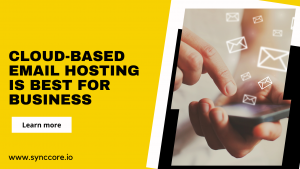Table of Contents
Why Migrate To The Cloud
Cloud computing isn’t a new concept in the corporate world. Even though nearly all businesses run their on-premises hardware servers to maintain IT infrastructure, the pandemic has forced specific changes. Firms are switching to the cloud and refusing to use legacy systems to maintain business continuity. According to a survey conducted by Flexera, 50% of worldwide decision-makers believe that cloud usage and spending would expand.

I’ll use examples to demonstrate cloud basics and migration benefits in this article.
What Is Cloud Migration?
Moving digital operations to the cloud is known as cloud migration. It usually refers to migrating to the cloud from on-premises data centers or legacy infrastructure. One of the most realistic cloud migration analogies I’ve come across is that it’s similar to a physical move, only that instead of packing up your belongings and relocating them to a new location, you’re moving digital assets from one data center to another.
Before delving deeper into the subject, it’s essential to grasp the fundamentals: what types of cloud services are available and what forms of cloud access are available.
Cloud Service Models
There are three different types of cloud service models. Each one is designed to satisfy specific business requirements and make the cloud as adaptable as feasible.
Software as a Service (SaaS):
Software that can be purchased from sellers through the internet. SaaS applications include Salesforce, Dropbox, Slack, and MailChimp.
Platform as a Service (PaaS):
Platforms that give the necessary tools for app development. AWS Elastic Beanstalk, Heroku, and various Microsoft Azure services are examples.
Infrastructure as a Service (IaaS):
Cloud-based systems that provide computer infrastructure on a pay-as-you-go basis. IaaS services include AWS EC2, Rackspace, Digital Ocean, and Google Compute Engine, to name a few.
Cloud Deployment Models
Defined, cloud deployment is how software is made available. As a result, who can access the data on the cloud and how they may access it changes.
There are three main models:
Public cloud:
This cloud computing concept entails making cloud-based digital assets publicly accessible over the internet. Public services include Google, Facebook, and LinkedIn, to name a few. Customers can either use public clouds for free or pay a monthly fee to use them (i.e., PaaS, SaaS).
Private cloud:
“Corporate cloud” is another name for it. Unlike the public cloud, it is dedicated to a single firm and does not allow illegal access.
Hybrid cloud:
As the name suggests, this approach combines on-premises infrastructure, public cloud, and private cloud. Large corporations generally use it to keep sensitive data confidential while making various support-oriented services available to the public.
Read Related Article:
Public Cloud, Private Cloud & Hybrid Cloud: What is the Difference?
Why Move To The Cloud?
Now that you know what solutions are available, it’s time to learn how cloud migration might benefit you:
Cost Reduction
You won’t have to spend a lot of money on server hardware, maintain it, or pay a lot of money for electricity. You also save money on operational costs because your DevOps experts and system administrators don’t have to worry about backups and hardware upkeep. Pay-as-you-go pricing is available from cloud vendors, which means you only pay for the processing resources you use.
Scalability
With workloads in the cloud, you can swiftly respond to peak demand and scale down capacity as needed. All of this happens automatically and takes very little time and effort. To boost power with on-premises hosting, you’d need to purchase and install extra equipment. However, even after a load surge has passed, you must still pay for the additional resources it used.
Security
Reliable cloud providers update their services regularly to meet current industry requirements and laws. These safeguards are in place to lessen the danger of cyberattacks on you, the client. According to Gartner, customers will be responsible for up to 99 percent of cloud security breaches until 2025.
Reliability
True, not all cloud implementations go as planned. There may be some hardware issues and downtime. On the other hand, cloud migration is a surefire way to cut down on downtime and reduce the chance of data loss in the future.
True, not all cloud deployments go according to plan. There may be some downtime due to hardware issues. On the other hand, Cloud migration is a specific strategy to reduce downtime and prevent data loss in the future.
The reliability of the Under Armour Connected Fitness platform was a problem. The corporation had two data centers, and if the principal one experienced problems, there were outages. As a result, the company chose to shift to the cloud, which solved the problem.
Fast Implementation
The cloud provides enterprises with virtually endless possibilities from a business development standpoint. It also has to do with the speed with which digital innovation occurs. Your development teams can optimize and expedite workflows thanks to the technological freedom provided by cloud providers.
After switching to the cloud, Capital One, one of the largest banks in the United States, cut its time to construct a development environment from several months to a few minutes.
Availability
You and your team can access programs from anywhere in the world at any time, thanks to cloud computing. As a result, businesses can provide their employees with a flexible schedule, allowing for a smooth transition to remote work.
Summing Up
Given the current circumstances, moving away from old software and adopting cloud computing are natural next steps. It becomes a must-have step for company continuity and an investment that pays off quickly for most businesses.
If you are looking for Cloud Services, Synccore cloud is the first autonomous cloud platform with free workload migration. SyncCore Cloud is one of the Best in industry solutions. Check out SyncCore Cloud Services Here. For inquiry mail us at [email protected].
Read More:



